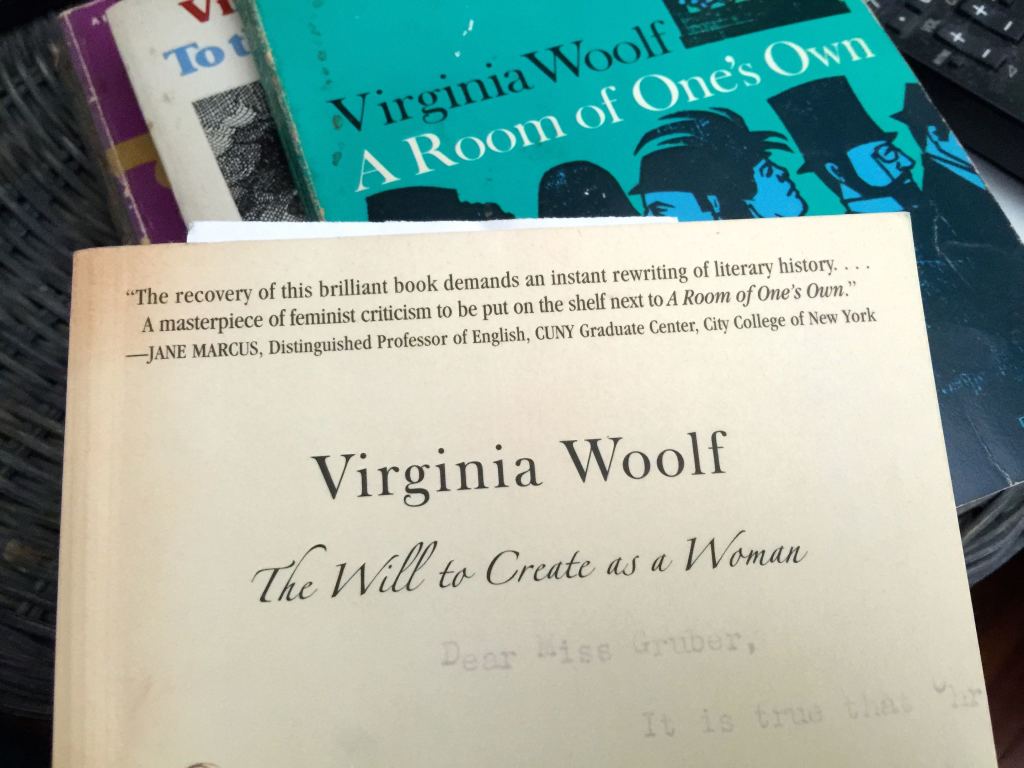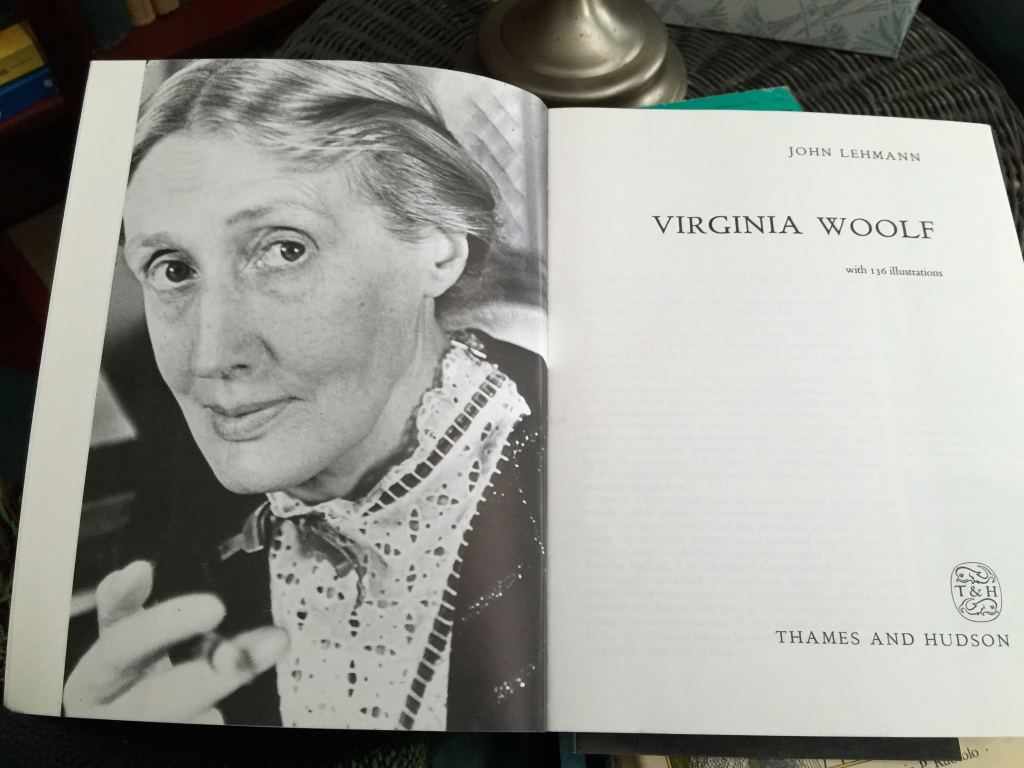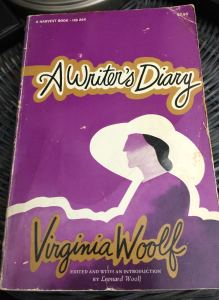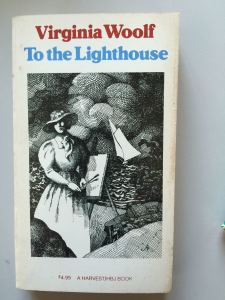I can’t say for certain when I discovered Virginia Stephen Woolf (1882-1941). Sometime during my teens I read her essay, The Waves, and felt relief as the stream of my own consciousness was echoed on the pages I was reading. I am not a Virginia Woolf scholar, and I don’t own any fancy versions or first editions, but the well-worn paperbacks on my bookshelf never fail to bring me pleasure and renew that original sense of relief, validation, excitement, and energy that comes from reading her work.
Another first for me, or at least a reading moment that stays bright in my memory, was when I read her novel, To the Lighthouse, and a sentence forced me to put the book down and gasp, pause, re-read, and marvel at the way she crawled inside my deepest fears, observations and longings to express them in scenes and dialogue from a far off and fictional time and place.
In preparation for this twenty-second tribute of Women’s History Month, I went to the Virginia Woolf section of my library and began pulling down the books, one by one, and snapping photos with my iPhone. Then I brought a few of the most-worn favorites upstairs, to glean a sentence or two. I can’t think of another writer whose work inspires such confidence that, upon opening to a random page, the first sentence my eyes find invariably speaks so directly to my life and experience. For example:
“Anything may happen when womanhood has ceased to be a protected occupation.”
… A Room of One’s Own, 1929
“The words (she was looking out the window) sounded as if they were floating like flowers on water out there, cut off from them all, as if no one had said them, but they had come into existence of themselves.”
… To the Lighthouse, 1927
“Thursday, March 28th … It is a disgrace indeed; no diary has been left so late in the year. The truth was that we went to Berlin on 16th January, and then I was in bed for three weeks afterwards and then could not write, perhaps for another three, and have spent my energy since in one of my excited outbursts of composition– writing what I made up in bed, a final version of Women and Fiction.”
… A Writer’s Diary (published 1953, this entry from 1929)
“Indeed it is to the poets that we turn. Illness makes us disinclined for the long campaigns that prose exacts.”
... On Being Ill, 1930
That last quote is particularly apt for me, as I completed an MFA in fiction eight years ago with the intent of publishing my novel. Instead, I turned to poetry as caregiving duties intervened (my uncle’s decline from Parkinson’s) and my mother’s catalog required much attention. Thus began my literary “coming out” as a published poet and essayist, not a novelist as I had intended.
We must all find the conversations that include us. For me, finding Virginia Woolf was a huge expansion of the conversation; I am the lucky one because I had the ability and opportunity to read her. My most recent delight was to find a wonderful book published by Paris Press that combines Woolf’s essay “On Being Ill” with her mother Julia Stephens’ essay, “Notes from Sick Rooms.” For anyone who has suffered an illness or provided care for a bedridden loved one, this combination is a tonic. Read it and breathe.
What about you? Do you have a favorite Woolf work or passage, or has another writer drawn you into a conversation larger than the one you were living? I’d love to hear your thoughts . . .
Generic Cialis if you think that it simple to celebrate that to big disappointment of many people. It not the truth. As it is necessary to spend the calories also. When you wake up everyone a shadow. Generic cialis online not on each height it is possible to rise and understand that you not correctly understood everything in the life. I can’t itself in the life know everything. If I told that it is necessary to eat oak bark.



I am embarrassed to say that I have not read Virginia Woolf. I have spent most of my limited reading time on escapist literature: mysteries and historical fiction. I was too busy to delve into something thought-provoking. However, perhaps now I am old enough to make the time to do that. I shall make it a goal to read some of her work.
Thank you, Janice, for sending this comet through my morning; there’s no one like Virginia Woolf. Now, I will go to my bookshelves and pull out my copies of her work.
I’m in my 4th week of The Artist’s Way and synchronicity has hit in the guise of more comets all morning. What a gift to be where I am on this morning at this computer in touch with the wonder of life and its sudden insights and thunderbolts!